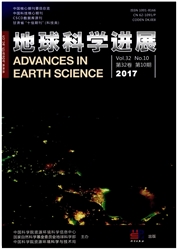

 中文摘要:
中文摘要:
滨海盐沼湿地是全球重要的碳库,也是典型的脆弱生态系统。近年来,随着人口的增加,滨海盐沼湿地围垦开发已经成为缓解区域人口压力,保障粮食安全,促进经济发展的一项重要措施,特别是在发展中国家。围垦活动过程中必然会改变原有生态系统碳循环的路径和模式,进而影响全球的碳收支平衡。通过对大量文献的检索与总结,对国内外3种滨海盐沼湿地类型(红树林盐沼湿地、河口潮滩盐沼湿地和海岸潮滩盐沼湿地)土壤有机碳含量、固碳速率、碳排放速率以及围垦后的变化进行梳理和概括,给出滨海盐沼湿地围垦后土壤碳循环的一般规律与变化趋势,结果表明:①欧美长期滩涂开发形成的认识与滩涂围垦后的生态环境效应演变不适用于东亚发展中国家的短期高强度农业围垦,应注重东亚地区海岸围垦方式下的碳效应研究;②从滩涂湿地有机碳含量及其固碳速率来看,红树林盐沼湿地最高,河口潮滩盐沼湿地次之,海岸潮滩盐沼湿地最低。土壤黏粒、团聚体和埋藏速率对其具有较为明显的正向效应;淹水频率、盐分、地下水位反之。滩涂围垦后土壤有机碳含量呈先降后增的趋势,其转折点在围垦后30年左右,水田耕作对滩涂土壤有机碳富集效果最明显;③滩涂盐沼湿地的主要碳排放方式是CH_4和CO_2,其中CO_2的排放强度和通量都较大,且以红树林盐沼湿地最高。芦苇和互花米草的土壤碳排放强度相比于光滩要大很多。涨潮的过程中湿地碳排放强度要明显低于涨潮前后。滩涂围垦后的土壤碳排放强度要明显高于自然滩涂土壤,特别是围垦后的旱田耕作下的CO_2排放。从监测的结果来看,围垦前滩涂湿地表现为较强的碳汇,而围垦后表现出较为明显的碳源。最后,提出今后研究的重点方向和内容:抓紧开展滨海盐沼湿地碳收支清单的制定;不同围垦方式对滨海盐?
 英文摘要:
英文摘要:
As an important carbon pool and fragile eco-system of earth system, more and more coastal salt- marshes have been reclaimed for releasing population pressure and promoting food safety and economic develop- ment, especially in developing countries. During reclamation, original soil carbon cycling pattern and pathway in sahmarshs would be changed, which furthermore could change global carbon budget. In this study, a great amounts of literature and data were summerized to generalize the changes of soil organic carbon, carbon sequestration rate and carbon flux in three main kinds of saltmarshes ( Mangrove saltmarsh, Estuary sahmarsh and coastal sahmarsh) during reclamation. The results are as shown: @The conclusions collected from Europe and America are not suit- able to eastern Asia' s coast and more attention should be paid to eastern Asia' s coastal reclamation; @Mangrove sahmarshes have higher Soil Organic Carbon (SOC) and carbon sequestration rate, followed by estuary saltmarshes and coastal saltmarshes. Soil clay, aggregate, burial rate usually have positive effect on SOC sequestration in coast- al areas. Flood frequency, salinity and underground water level generally have negative effect on it. After reclama- tion, coastal SOC first shows a decrease followed by an increase. Nearly 30 years of reclamation is the turning point where paddy fields can significantly promote SOC ; (~)CHa and CO2 are the main ways of carbon emission in coastal areas of which CO2 flux usually is the largest. Mangrove sahmarshes' carbon emissions are the highest. In natural sites, the carbon emissions in Spartina aherniflora Loisel. and Phragmites australis are higher than those in bare flat areas. Carbon fluxes in flood tide usually are lower than those in other periods. Otherwise, carbon fluxes in natural sahmarshes are far lower than those in reclamation zones, especially upland tillage zones. The results acquired from field monitoring, sahmarshes are the carbon sinks and become the carbon sources when reclamatio
 同期刊论文项目
同期刊论文项目
 同项目期刊论文
同项目期刊论文
 期刊信息
期刊信息
